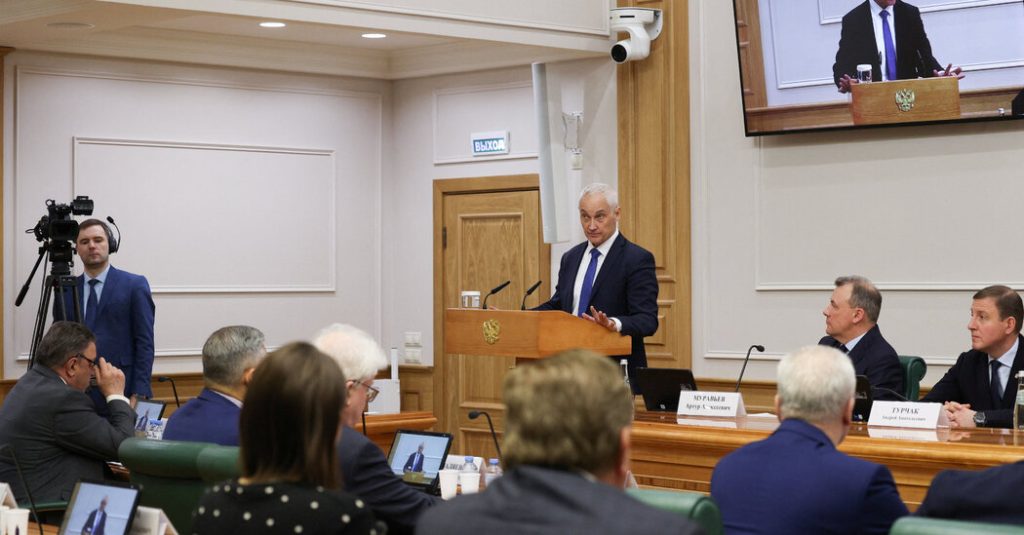President Vladimir V. Putin of Russia has appointed Andrei R. Belousov, an economist, as the new defense minister. Belousov’s focus is on managing military production to sustain a war of attrition with Ukraine. Russia is taking a slow and steady approach on the battlefield in northeastern Ukraine, pushing forward gradually rather than attempting major breakthroughs to big cities. Belousov emphasized bureaucratic details and improving standards of care for soldiers in his first public appearance as defense minister.
Belousov’s appointment reflects Putin’s priority of subordinating the country’s economy to military needs. Putin hopes that a war in Ukraine or a militarized standoff with the West will shape Russia’s future for years to come. Belousov is known for supporting a strong state role in the economy and high public spending. The war has led Putin to enact some of Belousov’s economic proposals, such as higher taxes on big businesses and increased use of the country’s oil savings.
The new defense minister will replace Sergei K. Shoigu, who was loyal to Putin but faced criticism following the initial invasion in February 2022. Rather than firing Shoigu during the crisis, Putin chose to replace him now that Russia appears to be in a stronger position in the war. The slower-paced Russian strategy on the battlefield involves systematic attacks on Ukrainian defenses to gradually inch forward against overstretched defenders. Russia recently opened a new front in the northern Ukrainian border region of Kharkiv, using small units of infantry supported by artillery to advance one village at a time.
The strategic shift to attrition aligns with Russia’s methodical bureaucratic approach to overseeing the war effort. The failure of initial attempts to stun the enemy into submission in 2022 led to a more calculated strategy of gradually wearing down Ukrainian defenses. This approach has allowed Russia to exploit its manpower and firepower advantage, focusing on systematic pummeling of Ukrainian positions. While the new offensive in Kharkiv is unlikely to capture the city, it has succeeded in drawing Ukrainian reinforcements away from other sections of the front, putting additional pressure on Ukraine to recruit fighters and obtain weapons from Western allies.
Overall, Belousov’s appointment as defense minister signifies a new focus on managing military production and bureaucracy to sustain Russia’s war effort. Putin’s strategy of a war of attrition is aimed at shaping Russia’s future through military and economic means. By replacing Shoigu and adopting a slower-paced battlefield strategy, Russia is seeking to gradually advance against Ukrainian forces while slowly wearing down defenses. The latest offensive in Kharkiv demonstrates Russia’s commitment to this attrition-based approach, aiming to maintain pressure on Ukraine in the ongoing conflict.


